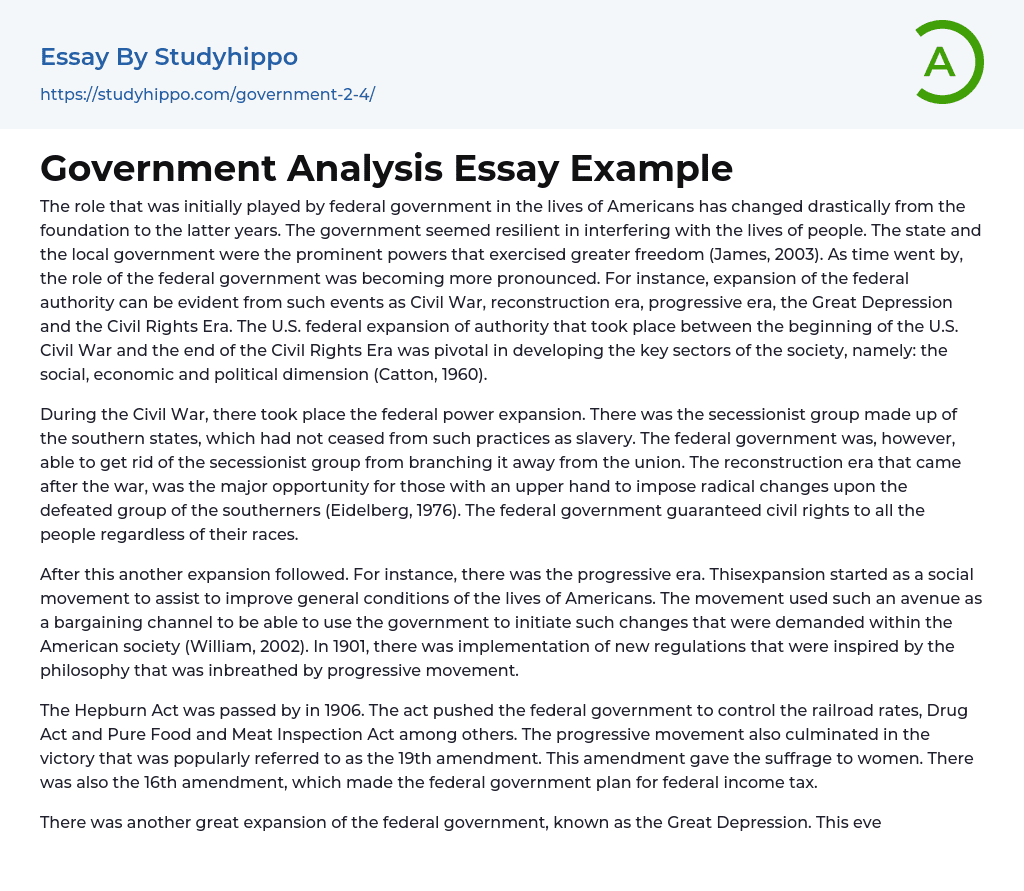Throughout history, the role of the federal government in American lives has undergone changes. In the beginning, it granted more power to state and local governments with minimal interference. However, as time went on, the authority of the federal government grew. We can see this evolution in important historical events like the Civil War, reconstruction era, progressive era, Great Depression, and Civil Rights Era. The expansion of federal authority during this time was instrumental in shaping society socially, economically, and politically.
During the Civil War, the federal government's power grew to combat secession and slavery in the southern states. In the reconstruction era that followed, those in power took advantage of this opportunity to impose radical changes on the defeated southerners. The government ensured civil rights for all regardless of race.
This expansion continued during the progressive era, which aimed to i
mprove American society through government-led initiatives. Starting in 1901, regulations inspired by this movement were put into effect, including acts such as the Hepburn Act (allowing federal control over railroad rates), Drug Act, and Pure Food and Meat Inspection Act. Moreover, these efforts led to important constitutional amendments like granting suffrage to women (19th amendment) and enabling federal income tax planning (16th amendment).
The Great Depression in 1929 marked another milestone in expanding federal government involvement as it caused a stock market crash and widespread unemployment leading many individuals into poverty without means of support. In response to this crisis, new plans were implemented by the federal government that included increased authority and ability to levy taxes.
During the time period, social programs such as the Unemployment Act and Social Security Act were implemented and still remain effectiv
today.The government implemented public work programs and encouraged union membership as well as initiating the Civil Rights Era, a movement aimed at addressing societal inequalities and segregation, particularly in the South. Lasting from the 1950s to the 1960s, its objective was to combat these disparities. A major milestone occurred with the passage of the Civil Rights Act in 1968, which ensured equal treatment and rights for individuals regardless of race or ethnicity. The intense division and tension between the north and south during the Civil War peaked in 1861 (Catton, 1960); however, eventual unity was achieved through compromise resulting from this brutal conflict. During this period, President Abraham Lincoln issued an Emancipation Proclamation that compelled Congress to abolish slavery in 1865 (William, 2002). Congress was then tasked with taking action against ten Confederate states, increasing its power. Despite laws mandating equal treatment between blacks and whites, there remained a significant gap between social structure and civil rights progress; black individuals continued to be treated as slaves.
- Federal government essays
- Armed Forces essays
- Confederate States Of America essays
- Federal Government Of The United States essays
- Fourteenth Amendment To The United States Constitution essays
- Governance essays
- Parliament essays
- Politics essays
- Jurisdiction essays
- Bureaucracy essays
- Separation Of Powers essays
- Congress essays
- President essays
- United States Congress essays
- Non-Commissioned Officer essays
- Appeal essays
- Revenge essays
- Corporate Governance essays
- Public Service essays
- Income Tax essays
- Supply essays
- Red Cross essays
- Democracy essays
- State essays
- Liberty essays
- Absolutism essays
- Reform essays
- Republic essays
- John Marshall essays
- Bourgeoisie essays
- Developed Country essays
- Elections essays
- International Relations essays
- Left-Wing Politics essays
- Monarchy essays
- Political Corruption essays
- Political Party essays
- Political Science essays
- Sovereign State essays
- United Nations essays
- World Trade Organization essays
- Contras essays
- Dictatorship essays
- Foreign policy essays
- Monarch essays
- Corruption essays
- Foreign essays
- Democratic Party essays
- European Union essays
- President Of The United States essays




